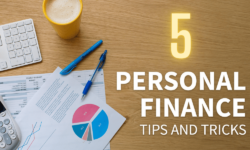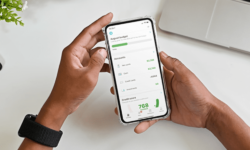First-Time Home Buyer Guide: Everything You Need to Know
Buying a home for the first time can be overwhelming. The many processes, tasks, and requirements you must meet make you anxious, sucking the fun out of house hunting. There are so many perks for a first-time home buyer today, and when you know how to take advantage of them towards your first home, you will be in a much better position, and you will be moving into your new home within no time.
By obtaining a mortgage, you get much-needed help because you have someone to guide you through the whole process. This article provides all the details you need to know as a first-time home buyer, from the conditions you must meet, things to consider before you make a purchase, types of loans available, and the buying process.
Who Qualifies for First-Time Homebuyer Mortgage Programs
According to the Department of Housing and Urban Development in the United States, a first-time homebuyer must meet the following conditions:
- You must not have owned an official principal residence for the past three years. And if you owned a home, but your spouse has never, then you can qualify as a first-time homebuyer if you make the purchase together.
- A single who previously owned a home together with their former spouse while married.
- If you owned a principal home temporarily because it was in an apartment and not affixed to any foundation, however, check all the regulations to ensure that you qualify.
- If you previously owned a house that was not in compliance with the state or local building codes.
So, if you want to access the perks of a first-time home buyer, such as state programs, tax breaks, and federally backed loans, ensure that you meet the above requirements.
What Matters When You are Making Your First Home Purchase
Before embarking on your first home purchase, you need to have clear goals of what you are looking for and how to achieve them. And since you cannot afford to buy on a cash basis, you must have a clear grasp of the following to ensure that your mortgage pre-approval passes without a hitch and that you get your dream home.
- Financial status
If you want to qualify for a mortgage, you must do a serious audit of your finances because you don’t want surprises when you find your dream home. Ensure that you have enough savings to last you at least 6 months. With a mortgage, you will be required to pay some upfront costs such as application fees and closing costs.
So if you are 24 years old and want to buy your first home at 28 years, you will have 4 years to build your credit, savings, and even invest some. Ensure that your savings are accessible.
Review how much you are spending every month to determine how much you can allocate to your mortgage. Ensure that you account for every expense, from bills, groceries, clothing, entertainment, and debts.
Make sure you have good credit because your lender will check your credit score and credit report, and debt-to-income ratio before mortgage pre-approval.
Learn how to fix bad credit fast if your credit score is low.
- The type of home that meets your needs
When buying a home, you have a few options from a condo, duplex, single-family residence, or a co-operative. So ensure that you identify which type of home you want. You can contact your realtor about the pro and cons of each of those homes before making your decision.
- How much the lender is approving
Before going house hunting, it’s good to know how much your lender is willing to loan you. This will help you narrow down your search and start by looking at homes within your budget. Make sure that you apply for mortgage pre-approval before placing an offer, as it shows sellers that you are serious.
It will also give you room to negotiate with the sellers, and you may find that they are willing to compromise on some things, such as offering to pay for home appraisal and inspection. Compare different lenders based on their interest rates, communication, and terms before selecting.
Read Also: How to get a Mortgage Pre-approval
- What do you need in a home?
Knowing the features you want in your house is an excellent step to identifying your dream home. Although it’s good to be flexible, it’s good to buy a place that you will look at 5 years later and be comfortable with. You need to consider location, size, layout, and if it is pre-fitted with essential appliances.
You can look at several real estate websites to narrow down your search before going to view them in person.
- How much can you afford
Before committing to buy a home, take an audit of the total cost of the house. You may find that the bank is advancing a total of $400,000, but that does not mean that you borrow the whole amount.
The more you borrow, the higher your monthly payments will be, and it may leave you struggling to cater to other expenses. So make sure not to borrow more than you can afford.
Read also: The Ultimate Beginner’s Guide to Budgeting and Saving
- Find a trustworthy realtor
Find a real estate agent to help you locate a home within your budget and meet your needs, then have them go with you to view them. Once you have identified the home to buy, the realtor will help you go through the purchase process, from making an offer, to getting a mortgage, and completing the required paperwork.
Make sure that your agent is not only looking to sell and earn a commission; they must have your interest at heart.
Types Of Loans Available For A First-Time Home Buyer
When buying a home for the first time, the costs involved can be overwhelming, but lucky for you, there are several options for assistance with your loan, down payment, and closing costs. We’ve rounded up a list of the best home loans for first-time buyers, grants, and programs.
These programs will help you purchase a home without having to make the 20% down payment.
1. FHA Loans
This is a loan insured by the Federal Housing Administration and is best for people with a low credit score of 580+ and smaller down payments of 3.5% and below.
Compared with conventional loans whose credit score is above 720+, FHA’s are the best home loans for first-time homebuyers. In some instances, you can qualify for FHA if you have a 10% down payment and a credit score of 500 to 579.
However, if you put less than a 20% down payment with FHA loans, you will be required to pay mortgage insurance, increasing the overall cost of the house since you will be paying upfront and annual premiums.
And unlike homeowners insurance, mortgage insurance does not protect you; it protects the lender if you default in your payments.
Read also: How to lower homeowners insurance costs
2. VA loans
This is best for active-duty military members, veterans, and their spouses. The loan is backed by the United States Department of Veteran Affairs. The best part is it allows no down for the said people. Note that the VA does not provide the loans; instead, it guarantees mortgages made by qualified lenders, allowing veterans to access home loans with favorable terms.
VA loans are easier to qualify for compared to conventional loans. However, you will have to request your eligibility from the VA before applying for a loan. You are issued a certificate of eligibility that you can use to apply for a mortgage.
And compared to other loans, VA loans have a lower interest rate, but you will be required to pay a funding fee; that is a must for VA loans, but don’t sweat because it can be rolled into your monthly payments.
With a VA loan, you don’t need a minimum credit score and no mortgage insurance. And if you find that you are struggling to keep up with your payments, the VA can negotiate with the lender on your behalf.
3. USDA
These are loans guaranteed by the United States Department of Agriculture. They are extended to borrowers with lower to moderate income looking to buy homes in USDA-qualified rural areas. The good thing about USDA loans is that the borrowers are offered 100% financing.
But this does not mean that you have to buy a farm or rear livestock. USDA loans required a minimum credit score of 640+ to qualify for a loan.
4. State and local first-time home buyer program
These are first-time home buyer mortgage programs and grants offered through the state or cities to assist first-time buyers with their down payment or closing costs. Many cities offer these programs and grant to attract new residents to their cities.
The aid comes in grants, and you do not need to repay them; however, some have income limits.
Therefore, making a home purchase, check with your realtor or visit your state’s housing authority website and learn more about the best home loans for first-time buyers in your area.
5. Good Neighbor Next Door
This program is provided by the United States Department of Housing and Urban Development. It is geared towards providing law enforcement officers, firefighters, teachers, and medical practitioners with housing aid.
If you are qualified for this program, you can receive up to a 50% discount on a home listed in Revitalization areas. And you must commit to living in that home for a minimum of 36 months.
6. HomePath ready buyer program
This is a program provided by Fannie Mae for first-time homebuyers who are interested in buying foreclosed homes owned by Fannie Mae. Before closing, you are required to take and pass Fannie’s Framework Homeownership course.
And after that, you can receive up to 3% closing cost aid with as little as a 3% down payment. This program is only available to first-time homebuyers who are committed to living in the house full time.
Although they are the best, it is next to impossible to find a HomePath property in the market because foreclosures are very limited.
7. Native American Direct Loan (NADL)
This is a VA program available to eligible Native American veterans looking to buy, renovate, or build homes on federal trust land. The NADL is different from VA loans because the VA is the mortgage lender. This type of loan does require a down payment, mortgage insurance, and the closing costs are low.
The good thing about NADL is that you are not limited to one property, as you can apply for more than one NADL. However, you must ensure that the properties are based in the eligible states.
8. Fannie and Freddie
This is a type of conventional loan backed by Fannie Mae and Freddie Mac. The buyer is required to put a down payment of 3%, and it is available to first-time homebuyers with a strong credit but low down payment.
To qualify, you must have a credit score of 620+ and a clean financial and credit history. The ratio of debt-to-income acceptable through the Fannie and Freddie program is as high as 50%.
Read Also: Quick and Easy ways to Get out Debt



